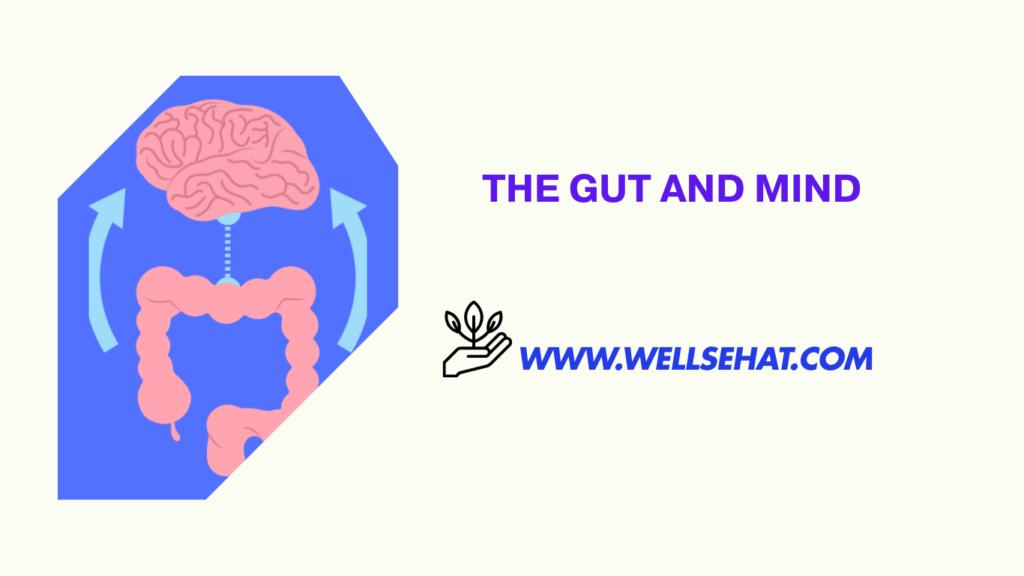Lately, the saying “you are what you eat” has transformed into a perfect liberalist motto. There is a very interesting connection between the state of microbiome in our guts and our heads, and researchers are gradually discovering it. The link between the gut and the brain is sometimes mentioned as the gut-brain axis, and what this means is that our microbiome could have a considerable influence over our feelings and thought processes. So let’s get into the details of what this means for us and how we can leverage this piece of information to improve our mental wellbeing.
Understanding the Gut-Brain Axis
In a nutshell, the gut-brain axis refers to the bidirectional communication between your gut and your head. It links the heart with the brain through the vagus nerve, and immune system, and the release of neurotransmitters.
The Vagus Nerve: This nerve can therefore be termed as playing a central role in transmitting signals between the gut and the brain. It can be described as a road that helps your brain to communicate and respond to signals from other organs, this may be the digestive system.
Gut Microbiome: Gut flora contains billions of microorganisms residing in the digestive tract of a human body, referred to as microbiome. They play the role of breaking down foods, synthesizing vitamins, and are useful in combating pathogenic bacteria. Luckily, they also secrete some neurohormones, including serotonin, which is mainly involved in the control of moods.
Immune System Connection: I also must reiterate the importance of the gut as it regards our immune system. The health of the gut microbiome also differs and when it is off balance then you have the situation that causes inflammation and conditions like depression and anxiety.
The Role of Gut Health in Mental Well-Being
Research has shown that a healthy gut microbiome can positively influence mental health. Here are some ways it works:
- Mood Regulation
Serotonin, commonly known as the ‘happy hormone’ is synthesized mainly in the stomach. Interestingly, 90% of this 5-HT is produced in our bowels. Normal levels of gut bacteria protect and boost serotonin levels to improve one’s mood and stability. On the other hand, if the gut microbiota reduces the serotonin level it may lead to sadness or anxiety.
2. Reducing Stress and Anxiety
Research shows that the particular species of bacteria known as probiotics can reduce cortisol, which is the body’s main stress hormone. It should be noted that cortisol in high amounts leads to anxiety or other mental disorders. If you take probiotics through food or supplements, it perhaps be seen that anxiety levels lessen and the general mood is calmer.
3. Cognitive Function
New studies show that the gut can also affect the brain and how it performs tasks such as memory and concentration. A few of the investigations have displayed that people with favorable gut microbiota do better on cognitive tests. The specifics are being researched still but there is evidence that suggests that the gut can affect inflammation and neurotransmitters.
Read More… The Art of Mindfulness Cultivating Peace and Presence in Your Life
Building a Healthier Gut for Better Mental Health
Now that we understand the connection between gut health and mental well-being, the question becomes: how can we support a healthy gut? Here are some practical tips:
1. Eat a Diverse Diet
The conclusion drawn was that a diverse diet means a diverse microbiome, which is good for the gut. Ensure you take foods rich in vitamins and minerals such as fruits, vegetables, whole grain products, and legumes frequently into your meal plans. Every sort of food they have gives different kinds of nutrients that help feed the bacteria in the gut.
2. Include Fermented Foods
Fermented foods like yogurt, kefir, sauerkraut, kimchi, and kombucha are rich in probiotics.
3. Limit Sugar and Processed Foods
High sugar intake can cause real problems for your gut health, so avoid taking unnecessary sugars especially artificial sweeteners or processed foods.
